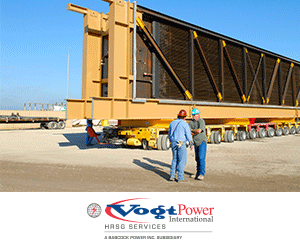Guest Commentary by Salvatore A DellaVilla Jr, managing director, Gas Turbine Association
“Too much change in too short a period of time,” the definition of ‘Future Shock,’ was conceptualized, defined, and shared in a book by Alvin and Heidi Toffler, published with the same name in the 1970s. If we look at today’s energy market, and we consider the messages that we hear almost every day, change has been too slow. But the global message is pretty strong: Change has to come fast and furious to mitigate the social and global impacts of using fossil fuels in power generating plants—no fossil fuels by 2040 or 2050.
Not many people would disagree that there is a need to reduce greenhouse gas (GHG) emissions to attenuate the rate of climate change. The goal of implementing a carbon-neutral economy demands will, policy, and technology; all three are required over a sustained period to effect positive change. Promoting clean energy solutions that include renewables, battery storage, and carbon sequestration cannot overlook the value and real benefit of natural-gas-driven gas-turbine technologies that already result in environmental improvement by transitioning the market to a cleaner energy future.
One has to wonder if where we are now is a result of not enough change over too long a period of our past, or simply a reflection of social confusion with the breakdown of normal decision-making that the Tofflers suggest is a consequence of “accelerated change.”
No fossil fuels by 2040 or 2050? That’s 20 to 30 years from now. That is fast! Is anybody worried about where baseload generation will come from? What about reserve margins? What will provide the base and load-following requirements, how will it be delivered? Who will provide the needed ancillary services, or black-start capability when power has been interrupted and must be restored quickly? Has anyone considered what will happen to energy costs in a 100% fossil-fuel-free energy economy? Balancing the grid, power and voltage, demands energy stability and resilience—a necessity.
The “Future Shock” is that heavy-duty and aeroderivative gas turbines will have a continued role with considerable sustainable investment value; they are part of the “Clean Energy Solution.” Replacing retirement-ready older coal-fired stations with more efficient gas-turbine-driven combined-cycle technologies has had a sustainable impact on reducing GHG emissions. Research from the Electric Power Research Institute (EPRI) indicates that “The US is responsible for 44% of global CO2 emission reductions since 2005, and 80% of that was from the electricity sector. Energy efficiency and cleaner generation have been the reason for these gains. Fuel blending can also help lower CO2 further.
The US has met the terms of the Paris Climate Change accord, at least in spirit and execution.
Gas-turbine combined-cycle systems integrate cost effectively with wind, solar, and existing battery storage applications. These hybrid systems can fill the cyclic, load-following, or peaking-power requirements that intermittent generators are not designed to fill alone. With new realistic “cleaner fuel” opportunity and availability, such as an appropriate hydrogen mix or blend, gas turbines will continue to meet the needs of baseload generation.
New-cycles development and associated R&D investment will ensure that gas turbines evolve in performance and capability to meet changing market demands. Gas turbines will add value as a clean energy technology that supports the needs of other market segments, like transportation charging stations. A vital component to the nation’s generating mix and the global installed base, gas turbines represent an investment-grade opportunity with a real return on investment that includes cost-effectiveness, reliability, efficiency, and resiliency.
The Tofflers were concerned with taking control over what they called “the accelerative thrust.” The “accelerated thrust” is always triggered by man, and it’s where we are right now. The Tofflers’ message: Control the waves of change or be overtaken by them. We need to heed this message. Climate change is real. Addressing this major global challenge means embracing the best mix of energy technologies. Gas-turbine technology, now and in our future, is a major part of the “Clean Energy Solution.”
Salvatore A DellaVilla Jr, managing director of the Gas Turbine Association, is the CEO and founder of Strategic Power Systems Inc. GTA is a membership organization established in 1995 with a goal of communicating the message that gas turbines are, and will continue to be, a vital component of power generation in the US.
Gas turbines now produce approximately one-third of our nation’s electricity. They are a cornerstone energy-conversion technology, providing electricity and heat for industries and communities. Today’s dynamic, innovative, and competitive energy market depends on clean and efficient gas-turbine products coupled with growing renewable generation capabilities.









